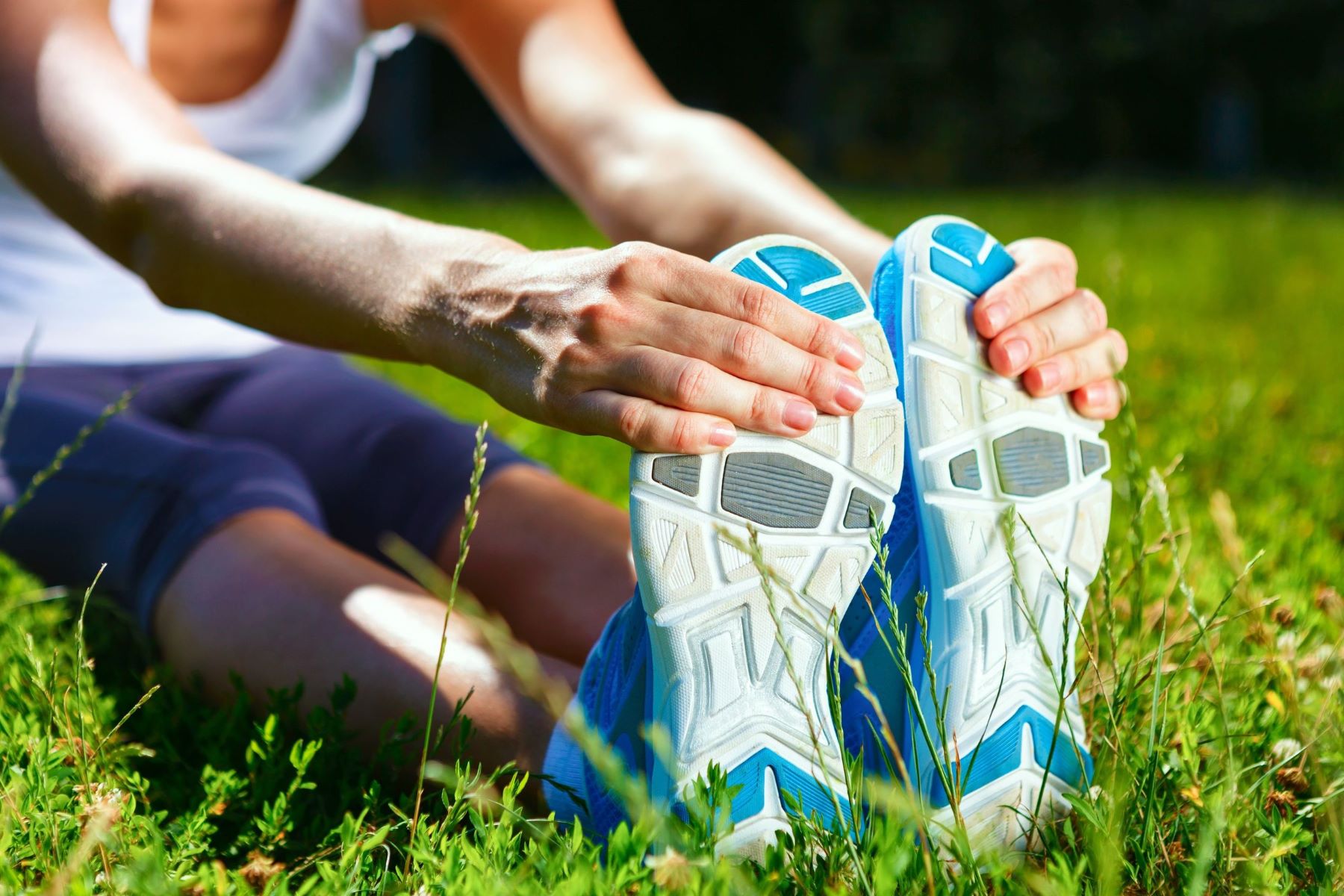Home>Health & Nutrition>The Effects Of Dehydration On Your Body And How To Avoid It


Health & Nutrition
The Effects Of Dehydration On Your Body And How To Avoid It
Published: February 25, 2024
Learn about the detrimental effects of dehydration on your body and discover effective strategies to prevent it. Enhance your health and nutrition with these essential tips.
(Many of the links in this article redirect to a specific reviewed product. Your purchase of these products through affiliate links helps to generate commission for Therunningadvisor.com, at no extra cost. Learn more)
Table of Contents
Understanding Dehydration and Its Impact
Dehydration occurs when the body loses more fluids than it takes in, leading to an imbalance that can have significant effects on overall health. The human body relies on water to function optimally, as it plays a crucial role in various bodily processes, including temperature regulation, nutrient transportation, and waste removal. When dehydration sets in, these essential functions are compromised, resulting in a range of adverse effects.
One of the primary impacts of dehydration is a decrease in physical and cognitive performance. As the body's water levels drop, so does its ability to maintain normal functions. This can lead to reduced energy levels, muscle weakness, and impaired concentration and decision-making. Furthermore, dehydration can hinder the body's ability to regulate temperature, making it more susceptible to heat-related illnesses such as heat exhaustion and heatstroke.
In addition to its immediate effects, chronic dehydration can have long-term consequences on overall health. Prolonged inadequate hydration can contribute to the development of urinary tract infections, kidney stones, and even more severe conditions like kidney failure. Furthermore, dehydration can exacerbate existing health issues, such as hypertension and respiratory conditions, making it crucial to address and prevent.
Understanding the impact of dehydration goes beyond physical performance and health implications. It also affects emotional and mental well-being. Research has shown that even mild dehydration can lead to mood disturbances, increased feelings of anxiety, and difficulty focusing on tasks. These effects can significantly impact daily life and productivity, highlighting the importance of maintaining proper hydration levels.
In summary, dehydration can have a profound impact on the body, affecting physical, cognitive, and emotional well-being. Recognizing the signs and understanding the consequences of dehydration is essential in taking proactive measures to prevent it. By staying informed and prioritizing hydration, individuals can mitigate the negative effects of dehydration and maintain optimal health and performance.
Read more: The Effects Of Running On Your Body
Signs and Symptoms of Dehydration
Dehydration manifests through a range of signs and symptoms, serving as crucial indicators of the body's fluid imbalance. Recognizing these manifestations is vital in addressing dehydration promptly and preventing its adverse effects.
-
Thirst: Thirst is the body's initial signal of dehydration. When fluid levels drop, the brain triggers the sensation of thirst to prompt water intake. However, relying solely on thirst as an indicator of dehydration may not be sufficient, especially in certain individuals such as older adults and young children.
-
Dark Urine: Monitoring urine color can provide valuable insights into hydration status. Dark yellow or amber-colored urine often indicates dehydration, signifying a concentrated waste product due to insufficient water intake. In contrast, adequately hydrated individuals typically produce pale yellow or straw-colored urine.
-
Dry Mouth and Lips: Dehydration can lead to dryness in the mouth and lips, accompanied by a sticky sensation. This occurs as the body conserves saliva, resulting in reduced moisture in the oral cavity. Persistent dryness may also cause discomfort and difficulty in swallowing.
-
Fatigue and Weakness: Inadequate hydration can lead to feelings of fatigue and weakness, impacting physical performance and cognitive function. Dehydration reduces blood volume and impairs the delivery of oxygen and nutrients to the muscles and brain, resulting in decreased energy levels and diminished alertness.
-
Headaches and Dizziness: Dehydration often manifests through headaches and dizziness, which stem from reduced blood flow and oxygen supply to the brain. These symptoms can range from mild discomfort to severe migraines and vertigo, affecting overall well-being and productivity.
-
Decreased Urination: A decrease in urine output or infrequent urination can indicate dehydration. The body conserves water by producing less urine, leading to a reduction in the frequency and volume of urination. Monitoring changes in urination patterns can provide valuable insights into hydration status.
-
Dry Skin: Dehydration can result in dry, flaky skin due to reduced moisture levels. The skin may appear less elastic and supple, and in severe cases, individuals may experience skin chapping and increased susceptibility to skin conditions such as eczema.
-
Rapid Heart Rate: When dehydrated, the body attempts to maintain adequate blood circulation by increasing heart rate. This compensatory mechanism aims to preserve blood pressure and organ perfusion, but it can lead to palpitations and a sensation of rapid or irregular heartbeat.
Recognizing these signs and symptoms of dehydration is essential for prompt intervention and rehydration. By staying attuned to these indicators, individuals can take proactive measures to maintain optimal hydration levels, supporting overall health and well-being.
The Importance of Staying Hydrated
Maintaining proper hydration is fundamental to supporting overall health and well-being. Adequate hydration plays a pivotal role in sustaining essential bodily functions and optimizing performance across various aspects of life. From physical vitality to cognitive acuity, the significance of staying hydrated cannot be overstated.
Proper hydration is integral to sustaining physical performance and endurance. Water serves as a primary component of blood, facilitating the transport of oxygen and nutrients to muscles and organs. Adequate hydration supports optimal muscle function, reducing the risk of cramps and enhancing overall physical performance during exercise and daily activities. Furthermore, staying hydrated aids in regulating body temperature, mitigating the risk of heat-related illnesses and ensuring efficient thermoregulation during physical exertion.
Cognitive function and mental acuity are profoundly influenced by hydration status. The brain, composed of approximately 75% water, relies on adequate hydration to maintain optimal function. Dehydration can impair cognitive abilities, including concentration, alertness, and short-term memory, affecting productivity and mental clarity. By prioritizing hydration, individuals can support cognitive performance, enhance focus, and sustain mental agility, contributing to improved overall productivity and well-being.
Proper hydration also plays a crucial role in supporting digestive health and nutrient absorption. Water aids in the breakdown and absorption of nutrients, facilitating the efficient transport of essential vitamins and minerals throughout the body. Additionally, adequate hydration supports the proper functioning of the digestive system, promoting regularity and preventing constipation. By maintaining optimal hydration levels, individuals can support digestive health and optimize nutrient utilization, contributing to overall vitality and wellness.
Furthermore, staying hydrated is essential for promoting skin health and vitality. Adequate hydration supports the maintenance of skin elasticity and moisture, reducing the risk of dryness, irritation, and premature aging. Proper hydration contributes to a radiant complexion and supports the body's natural detoxification processes, promoting skin clarity and overall health.
In summary, the importance of staying hydrated extends across various facets of health and well-being. From physical performance and cognitive function to digestive health and skin vitality, adequate hydration is integral to sustaining optimal function and vitality. By prioritizing hydration and maintaining adequate fluid intake, individuals can support their overall health, performance, and vitality, enhancing their quality of life.
Tips for Avoiding Dehydration
-
Regular Water Intake: Make a conscious effort to consume an adequate amount of water throughout the day. Keep a reusable water bottle handy as a visual reminder to drink water regularly. Aim to drink at least 8-10 glasses of water daily, adjusting based on individual needs and activity levels.
-
Monitor Urine Color: Pay attention to the color of your urine as it can serve as a reliable indicator of hydration status. Aim for pale yellow or straw-colored urine, which signifies adequate hydration. Dark yellow or amber-colored urine may indicate the need to increase fluid intake.
-
Hydrating Foods: Incorporate hydrating foods into your diet, such as fruits and vegetables with high water content. Watermelon, cucumbers, oranges, and lettuce are excellent choices to supplement fluid intake and contribute to overall hydration.
-
Electrolyte Balance: Ensure a proper balance of electrolytes by consuming foods rich in potassium, magnesium, and sodium. Electrolytes play a crucial role in maintaining fluid balance within the body, supporting hydration and optimal bodily function.
-
Hydration Schedule: Establish a hydration schedule to distribute water intake evenly throughout the day. Setting reminders or incorporating water consumption into daily routines can help maintain consistent hydration levels.
-
Limit Dehydrating Beverages: Reduce the consumption of dehydrating beverages such as caffeinated and alcoholic drinks, as they can contribute to fluid loss. When consuming these beverages, offset their effects by increasing water intake to maintain overall hydration.
-
Hydration During Exercise: Prioritize hydration before, during, and after physical activity. Drink water before starting exercise, consume fluids at regular intervals during prolonged activity, and replenish lost fluids post-exercise to support optimal hydration and performance.
-
Environmental Considerations: Be mindful of environmental factors that can increase fluid loss, such as hot weather and high altitudes. Adjust fluid intake accordingly to compensate for increased perspiration and fluid evaporation in these conditions.
-
Hydration Awareness: Cultivate awareness of hydration needs by listening to the body's signals and responding promptly to thirst. Additionally, consider the impact of factors such as illness, pregnancy, and breastfeeding, which may necessitate adjustments in fluid intake.
-
Personalized Hydration Plan: Tailor hydration strategies to individual needs, considering factors such as age, weight, activity level, and overall health. Personalized hydration plans can optimize fluid intake and support individual hydration requirements.
By implementing these tips and integrating them into daily routines, individuals can proactively avoid dehydration and maintain optimal hydration levels, supporting overall health and well-being.
Hydration Strategies for Different Activities
Hydration plays a critical role in supporting performance and well-being across various activities, each with its unique demands and fluid requirements. Tailoring hydration strategies to specific activities is essential in optimizing fluid intake and maintaining peak performance. Here are targeted hydration approaches for different activities:
1. Exercise and Physical Training
During exercise, the body's fluid needs increase to compensate for sweat loss and maintain optimal performance. Hydration strategies for physical activities include:
- Pre-Exercise Hydration: Drink approximately 16-20 ounces of water 2-3 hours before exercise to ensure adequate hydration before physical exertion.
- During Exercise: Consume 7-10 ounces of water every 10-20 minutes during exercise to replenish fluid loss and support endurance.
- Post-Exercise Rehydration: Drink 24 ounces of water for every pound of body weight lost during exercise to restore fluid balance and aid in recovery.
2. Outdoor Recreation and Sports
Engaging in outdoor activities and sports, especially in warm environments, necessitates vigilant hydration to mitigate the risk of dehydration and heat-related illnesses. Hydration strategies for outdoor pursuits include:
- Pre-Activity Hydration: Consume 16-24 ounces of water 2 hours before outdoor activities to preemptively address fluid needs.
- Electrolyte Replacement: Incorporate electrolyte-rich beverages or supplements to replenish sodium and potassium lost through sweat during prolonged outdoor activities.
- Hydration Accessories: Utilize hydration packs or water bottles designed for outdoor use to ensure convenient access to fluids during activities such as hiking, cycling, and outdoor sports.
3. Work and Physical Labor
Individuals engaged in physically demanding occupations or labor-intensive work benefit from tailored hydration strategies to sustain energy and prevent dehydration. Hydration approaches for work-related activities include:
- Scheduled Hydration Breaks: Implement regular breaks to consume water or electrolyte-enhanced beverages, especially in environments with high temperatures or physical exertion.
- Access to Hydration Stations: Ensure access to clean drinking water or hydration stations within work environments to facilitate consistent fluid intake throughout the day.
- Electrolyte Balance: Incorporate electrolyte-rich snacks or beverages to maintain a balance of essential minerals and support hydration during prolonged work shifts.
4. Recreational Activities and Leisure
Even leisurely pursuits and recreational activities warrant attention to hydration, as fluid requirements persist across various non-exercise settings. Hydration strategies for leisure activities include:
- Hydration Awareness: Maintain awareness of fluid intake during leisure activities such as picnics, sightseeing, and casual sports to prevent dehydration and support overall well-being.
- Hydrating Snacks: Include hydrating snacks such as fruits, vegetables, and low-sugar beverages to supplement fluid intake during leisurely outings and social gatherings.
- Family and Group Hydration: Encourage and facilitate hydration among family members and group participants during recreational activities to promote a collective focus on well-being.
By customizing hydration strategies to the specific demands of different activities, individuals can optimize fluid intake, support performance, and safeguard overall health and well-being across a diverse range of pursuits.
Read more: How To Avoid Common Mistakes As A New Runner
Rehydrating After Dehydration
Rehydration after experiencing dehydration is a critical process that aims to restore the body's fluid balance and address the physiological effects of inadequate hydration. When dehydration occurs, prompt and effective rehydration is essential to mitigate the adverse consequences and support overall well-being.
The rehydration process typically involves the consumption of fluids to replenish the body's water and electrolyte levels. Water serves as the primary component of rehydration, aiding in restoring fluid balance and supporting essential bodily functions. In cases of moderate to severe dehydration, oral rehydration solutions containing electrolytes such as sodium and potassium may be recommended to facilitate efficient fluid absorption and restore electrolyte balance.
In addition to water and oral rehydration solutions, incorporating hydrating foods and beverages can further support the rehydration process. Consuming water-rich fruits such as watermelon, oranges, and cucumbers, as well as clear broths and herbal teas, can contribute to fluid replenishment and provide essential nutrients to aid in recovery.
Furthermore, rehydration efforts should be accompanied by measures to address any underlying causes of dehydration. Identifying and addressing factors such as excessive heat exposure, strenuous physical activity, or illness is crucial in preventing recurrent dehydration and supporting sustained hydration.
The rate of rehydration depends on the severity of dehydration and individual factors such as age, health status, and activity level. Gradual and consistent fluid intake is generally recommended to avoid overwhelming the body's systems and to facilitate effective absorption.
Monitoring hydration status through urine color, frequency of urination, and overall well-being is essential during the rehydration process. These indicators can provide valuable insights into the body's response to rehydration efforts and guide adjustments in fluid intake as needed.
In cases of severe dehydration or when accompanied by symptoms such as persistent dizziness, rapid heartbeat, or confusion, seeking medical attention is imperative. Intravenous (IV) fluid administration may be necessary to rapidly restore fluid balance and address severe dehydration under medical supervision.
Rehydrating after dehydration is a proactive and essential step in restoring optimal hydration levels and supporting overall health and well-being. By prioritizing effective rehydration strategies and addressing underlying causes of dehydration, individuals can expedite recovery, mitigate the effects of dehydration, and promote sustained hydration for long-term wellness.














